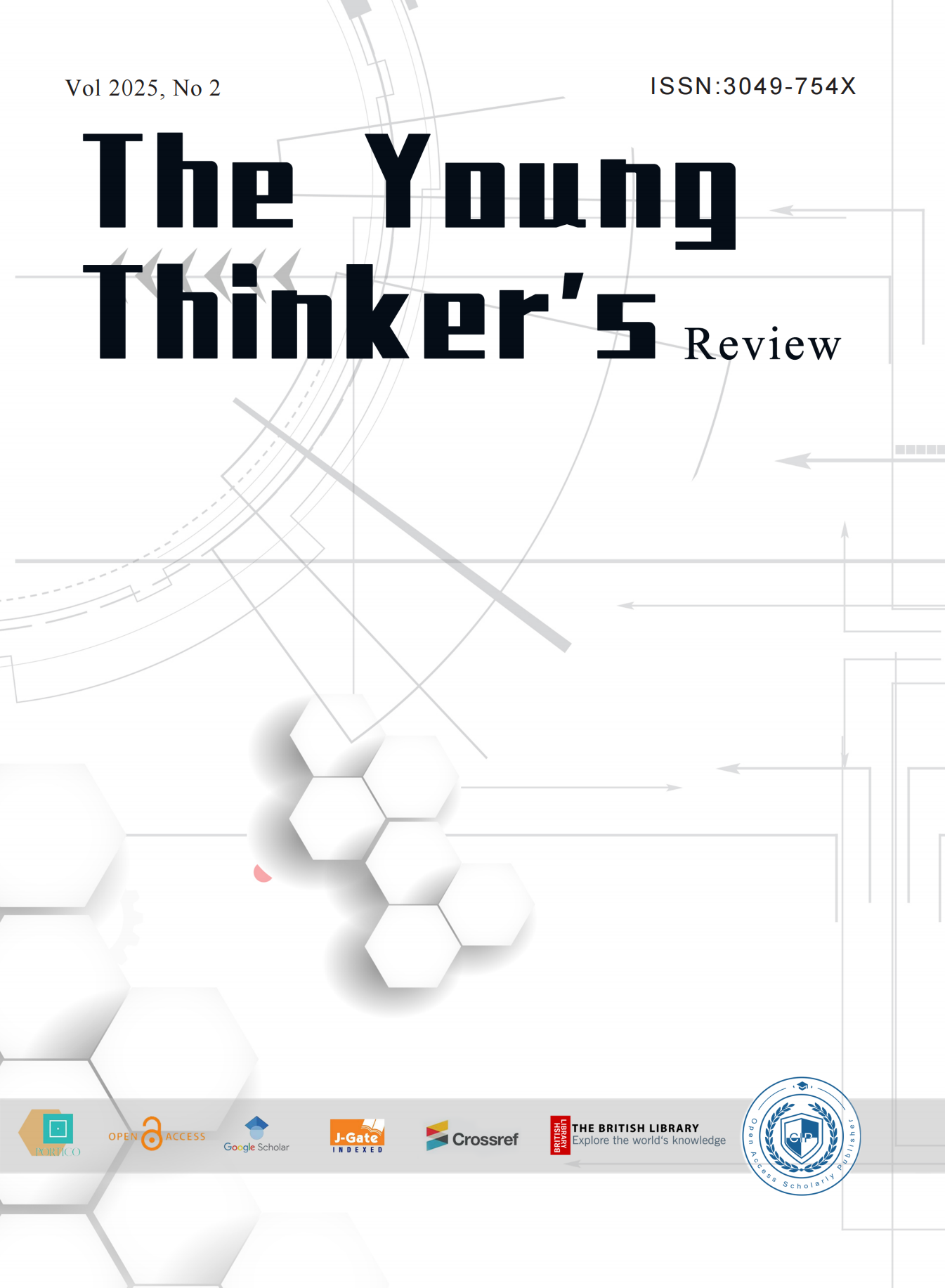Published 25-03-2025
Keywords
- Adolescent crime,
- Low self-control,
- Real-world social treatment,
- Family functioning
Copyright (c) 2025 The Young Thinker's Review

This work is licensed under a Creative Commons Attribution-NonCommercial 4.0 International License.
How to Cite
Abstract
Individual, family, and society are the three main factors influencing adolescent recidivism. By employing in-depth interviews to develop a questionnaire on "real-world social treatment" affecting adolescent recidivism, and combining it with the commonly used "low self-control" and "family functioning" scales in adolescent crime measurement, a survey was conducted among 49 incarcerated adolescents who had reoffended. After statistical analysis of the survey data, it was found that the factors of "low self-control" and "real-world social treatment" significantly influenced adolescent recidivism, while the factor of "family functioning" had no significant impact. There is a certain correlation between family socioeconomic status and the factor of "real-world social treatment." Changing the situation of "real-world social treatment" can influence the psychology of adolescent recidivism.
References
- Kang Shuhua. The Definition and Meaning of Juvenile Delinquency and Juvenile Crime [J]. Journal of Public Security Studies, 2000(2): 15-19.
- Zheng Hongli, Luo Dahua. New Progress in the Psychological Research on the Causes of Juvenile Delinquency [J]. Journal of Nanjing Normal University, 2008(1): 110-116.
- Liang Dekuo, Xu Dawei. Empirical Study on Juvenile Recidivism in the United States [J]. Hebei Law Science, 2013(11): 127-138.
- Zeng Yun. Research on Predicting the Risk of Recidivism among Inmates before Release [J]. Legal Science Review, 2011(6): 131-137.
- Kong Yi. Juvenile Recidivism Research—An Empirical Analysis of Recidivism among Rehabilitated Juveniles in Zhejiang Province [J]. Chinese Journal of Criminal Law, 2006(4): 95-103.
- Wang Zhiqiang. Empirical Study on Recidivism [J]. Journal of the People's Public Security University of China, 2010(5): 38-51.
- Qu Zhiyong, Zou Hong, Zhang Qiuling. Review of Juvenile Delinquency Research Based on Self-Control Theory [J]. Chinese Journal of Psychological Health, 2006(10): 21-26.
- Qu Zhiyong. Family Factors, Values, Self-Control, and Juvenile Delinquency [D]. Beijing: Beijing Normal University, 2005.
- Jiang Jiang, Lu Zhengrong, et al. Preliminary Revision of the Brief Parental Child-Rearing Practices Questionnaire in Chinese [J]. Psychological Development and Education, 2010(1): 94-99.
- Wu Zongxian. On the Basic Principles of Juvenile Offender Correction [J]. Juvenile Delinquency Issues, 2010(1): 63-67.

